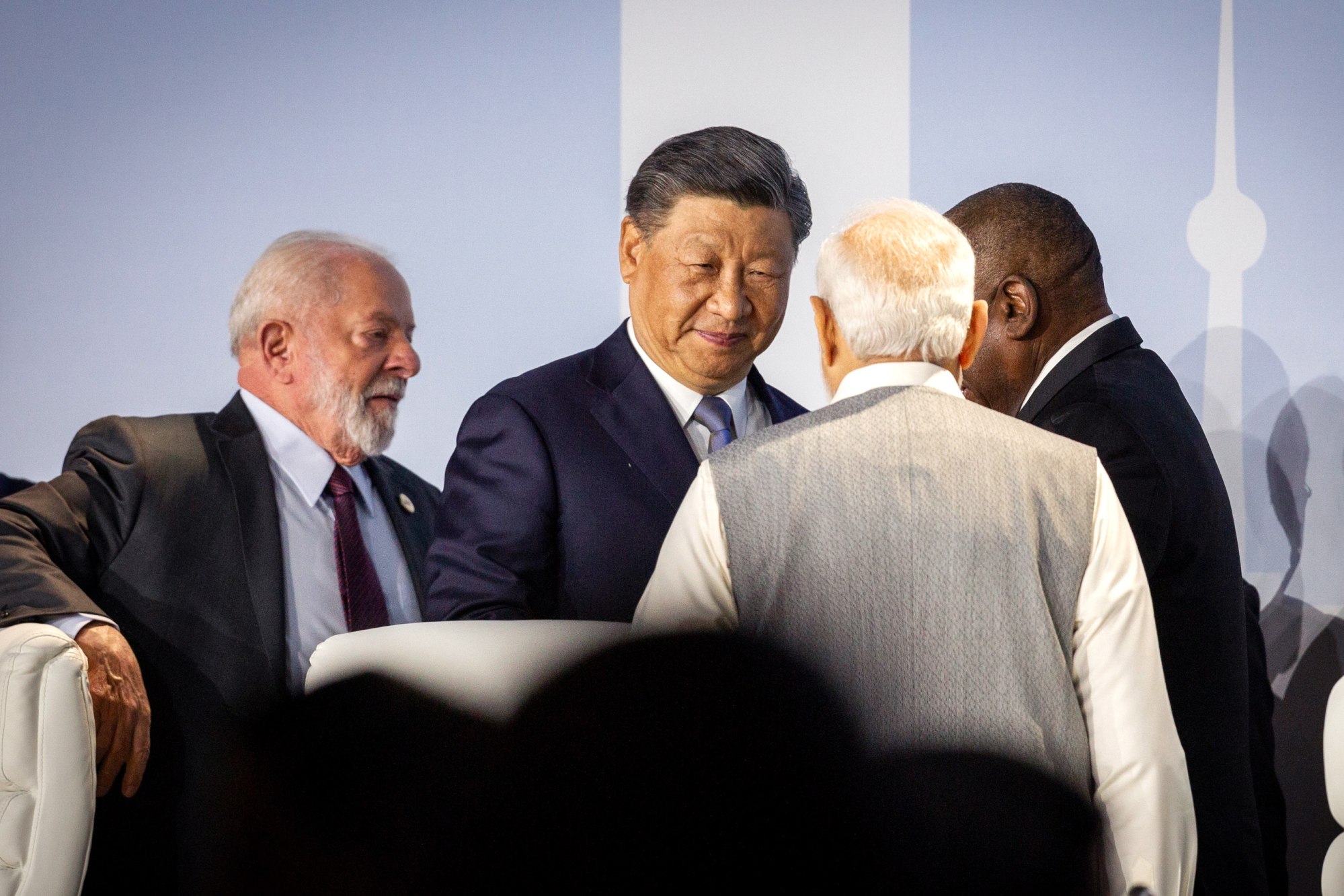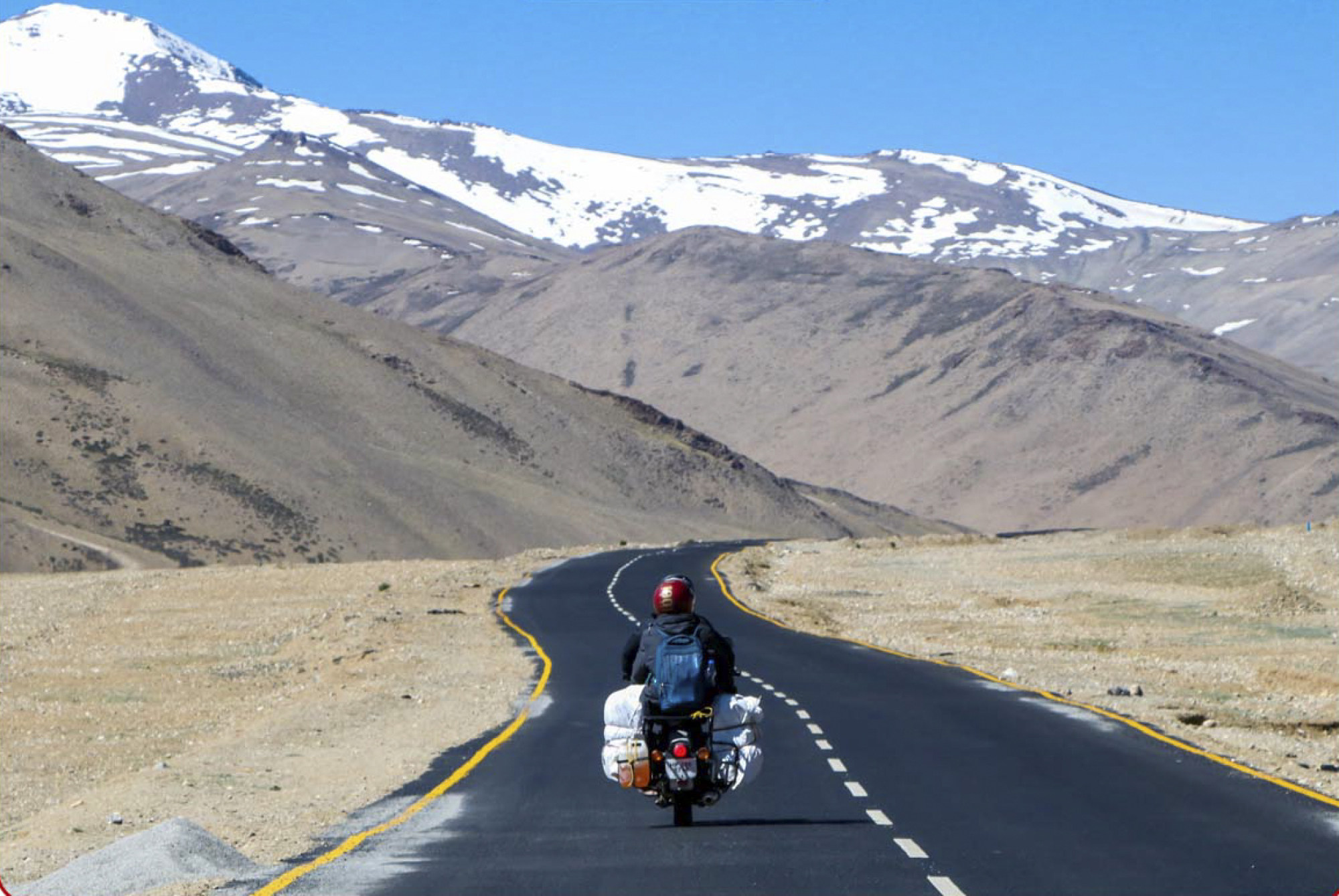By multiple measures, India’s ties with Taiwan have steadily deepened. Bilateral trade surged from just over US$1 billion in 2001 to US$7 billion in 2021. In July, a third Taipei Economic and Cultural Centre, a de facto consulate for Taiwan, opened in Mumbai.
Beyond trade and investment, a labour deal is in the offing. Last month, Taiwan’s labour minister acknowledged that talks were under way for a pact enabling Indian nationals to migrate to the island for work.
Exactly how many workers would be allowed is not yet known. Taiwan rejected earlier reports claiming the total would be about 100,000, accusing Beijing of fuelling misinformation.
China, India hope to ‘turn the page’ on Himalayan border tensions
China, India hope to ‘turn the page’ on Himalayan border tensions
Also in November, Taiwan’s deputy education minister led a delegation to several Indian universities, “underscoring” the “commitment to strengthening educational collaboration with the country”, according to a Taiwanese government press release.
Though the five-member delegation maintained it was a “private” visit, some reports suggested “closed-door talks” took place with the Institute of National Defence and Security Research, a think tank under Taiwan’s defence ministry.
The incident “ultimately caused the tectonic shift in India’s China policy”, Pal said.
“India’s engagement with Taiwan at various levels started getting consolidated,” Pal said of the 2020 fallout, “and it’s continuing by the day”.
That was also the year India fully relocated its foreign service officers’ Chinese-language learning training from mainland China to Taiwan, he noted.
New Delhi’s relationship with Taipei has “progressed logically based on their increasing common economic interests first and then political or strategic interests”, according to Jabin Jacob of India’s Shiv Nadar University.
New tilt for Maldives: toward China, away from US’s Indo-Pacific ally India
New tilt for Maldives: toward China, away from US’s Indo-Pacific ally India
Jacob reckoned that as companies in Taiwan “diversify away from China and China increases pressure on the border with India as well as on Taiwan, India and Taiwan will naturally have more to do with each other”.
In addition, Beijing had often made the mistake of assuming that Indian policies were “connected to or dependent on American policies”, he said.
Nearly 30 years before the US, New Delhi officially recognised the People’s Republic of China and its one-China policy, in 1950, maintaining no official connection with Taiwan during the Cold War.
The policy sought to upgrade India’s standing as a regional power to counter China’s expanding influence. Over time, New Delhi and Taipei established representative offices in each other’s capital.

Jeff Smith of the Heritage Foundation, a Washington think tank, described the ensuing years as an “exploratory phase” when New Delhi remained “cautious and sensitive” to Beijing’s one-China policy.
Although it appeared that Taiwan’s “diplomatic space was shrinking” with only about a dozen countries still recognising it as a sovereign state, other countries were finding “new ways to enhance diplomatic and economic linkages, and India may be the most important among them”, he said.
The connections almost certainly benefited from the fact that Modi had already worked extensively with Taiwan, well before he vaulted to India’s national stage nearly a decade ago.
He visited the island in 1999 as the Bharatiya Janata Party’s general secretary. In 2011, as chief minister of the Indian state of Gujarat, he hosted a Taiwanese delegation. And the next year, officials from Taiwan attended a global conference in Gujarat seeking to lure foreign investment to the state.
India’s Modi slammed for his ‘complete solidarity’ with Israel over Palestinians
India’s Modi slammed for his ‘complete solidarity’ with Israel over Palestinians
Then, in 2014 when Modi was sworn in as India’s leader, Taiwan’s representative in New Delhi, Tien Chung-kwang, was invited to the swearing-in ceremony.
Nevertheless, the Indian government took a more cautious approach with Taiwan after the two high-profile Xi-Modi meetings of 2018 and 2019. New Delhi was unwilling to upset its camaraderie with Beijing as well as the booming bilateral trade and commerce.
For Modi’s second swearing-in ceremony in 2019, when the prime minister led the BJP to a landslide victory, Taiwan’s representative was not even invited.
Everything changed, however, in 2020 with the clash between Indian and Chinese soldiers in Ladakh along the 3,400km (2,100-mile) boundary dividing the countries. The deadly encounter led to both sides amassing thousands of troops at various points on the border.
To date, 28 rounds of diplomatic talks have failed to reach a breakthrough or reduce tensions in the dispute.

Both sides “engaged in an open, constructive and in-depth discussion of proposals to resolve the remaining issues and achieve complete disengagement in Eastern Ladakh”, according to India’s external affairs ministry on Thursday after the latest round.
As Sino-Indian ties went cold, Taipei benefited from New Delhi’s renewed cordiality.
Such guardedness was not new. Since 2010, in opposition to Beijing’s claim on the Indian-administered northeastern state of Arunachal Pradesh, New Delhi has refrained from confirming its support for the one-China principle.
As if to reiterate the point, in 2014, then-Indian foreign minister Sushma Swaraj told Beijing that for “India to agree to a one-China policy, China should reaffirm a one-India policy”.
India approves subsidies for Apple supplier Foxconn, Lenovo, 25 other tech firms
India approves subsidies for Apple supplier Foxconn, Lenovo, 25 other tech firms
Today, while India has shed its “old reticence” about Taiwan, its stance on the one-China policy is unlikely to change, according to Harsh Pant of King’s College London.
Yet a sentiment has emerged that the time now is ripe for New Delhi to become more politically engaged with Taiwan.
Sana Hashmi of the Taiwan-Asia Exchange Foundation, a Taipei-based think tank, wrote in a recent op-ed that India remained “a notable exception” in the world “by not sending or encouraging a parliamentary delegation to Taiwan” despite the pandemic abating and an uptick in visits to Taiwan by lawmakers from around the world.
Only one Indian lawmaker had visited the island in the past two years, Hashmi said, as she asserted that Taiwanese lawmakers too “often overlook India, as their focus has predominantly centred on Western countries”.

